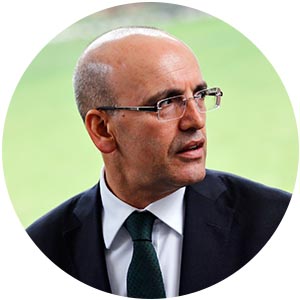Turkey - When the Justice and Development Party (AKP) swept elections in November, financial markets were focused neither on prime minister Ahmet Davutolu, nor on president Recep Tayyip Erdoan. All eyes were on new deputy prime minister Mehmet imek, the former Finance minister, who may be the only reformer within the largely statist AKP.

imek, who completed a postgraduate degree in the UK and worked at UBS and Merrill Lynch before joining the AKP government in 2007, insists that reforms are a priority and the independence of the central bank is sancrosanct. His promotion suggests Turkey’s government wants to reclaim its reformist zeal, which has taken a distant second place to politics over the past 18 months.
Turkey has unveiled a market-friendly program focused on macroeconomic stability and structural reform. Measures include new taxes on imported luxury goods, legislation to encourage Islamic finance and steps to ensure that public procurement become more transparent. On December 10, the government announced a 30% hike in the national minimum wage to 1,300 Turkish liras ($440) a month.
“The measures aimed at boosting domestic savings are really key: Turkey needs growth, but it must cut its current-account deficit, which remains high because of its dependence on foreign capital,” says William Jackson, an analyst at consultancy Capital Economics.
imek’s expertise could be useful in jump-starting privatizations, which have all but ground to a halt.
The big question is just how much influence he’ll have with Davutolu, Erdoan and his new cabinet colleagues, most of whom are AKP loyalists. He’s well aware of the risks inherent in a rise in US interest rates—warning in early December that it could cause $300 billion to flee from emerging markets. He’s sure to back Turkey’s renewed push for EU membership, which has helped drive reform in the past.



